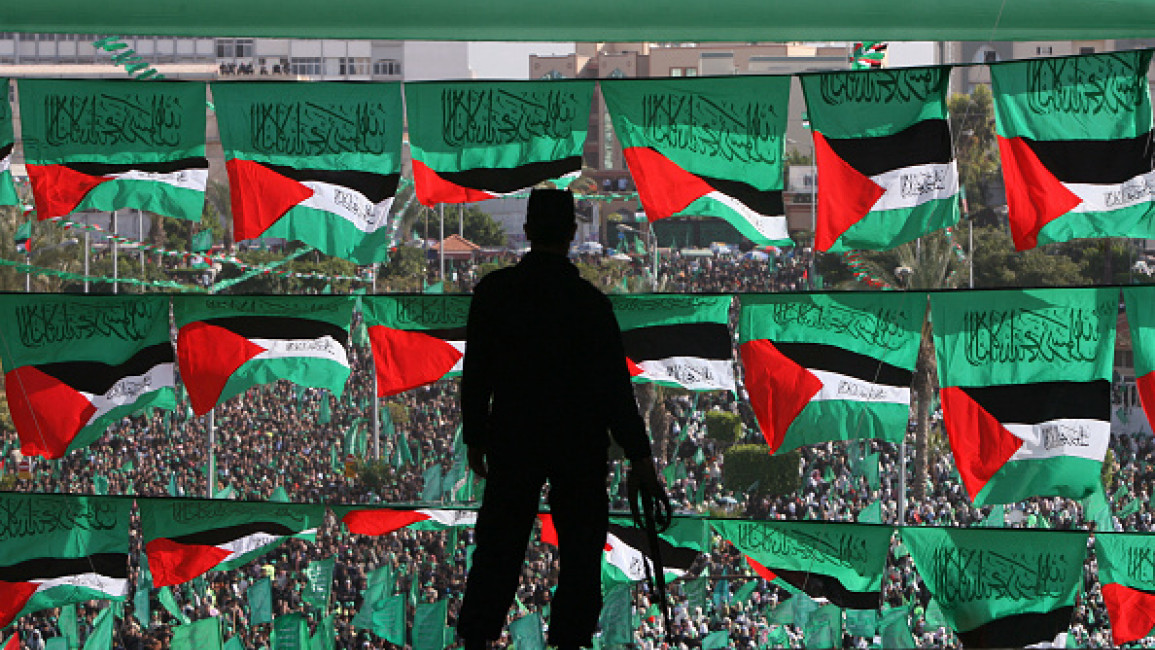Palestinians in Gaza divided over Hamas' execution of five people
Palestinians in the besieged coastal enclave, the Gaza Strip, have criticised the Hamas-run interior ministry for executing five Palestinians two days ago after a five-year suspension of capital punishment.
On Sunday, the Hamas authorities executed five Palestinians, including two condemned due to their collaboration with Israel and the remaining three over criminal cases, according to a press statement by the authorities.
The statement added that the defendants were previously given "their full rights to defend themselves".
However, the executions sparked the residents' criticisms, with some accusing Hamas of being selective in the death sentences.
Speaking to The New Arab, Mohammed Abu Zeid, a relative of one of the executed persons, said he was shocked when he heard that Hamas will carry out the death sentence against his cousin after he spent more than 10 years in prison.
His relative was sentenced to death for killing a moneychanger in Khan Younis city in the south of the Gaza Strip.
"I am not supporting him (...) but he was a teenager and did not want to kill the man," Abu Zeid said. "Hamas sentenced him to death because he has no intermediary with it or even officials related to it."
Amina Ahmed, a woman living in Gaza, said to The New Arab that she was shocked by the news about the execution, mainly amid the difficulties experienced by the Gazans.
"I cannot imagine their families' emotions at the execution," the 48-year-old mother of four said. "It is not right to invite them to such tough events."
She notes crime rates have risen in the Gaza Strip as a result of the difficult economic and political conditions, especially poverty and unemployment.
"Hamas bears a part of the responsibility of increasing the crimes in our area," the woman stressed. "It does not care about the people or even offering security to them."
Ibrahim al-Astal, a resident of Khan Younis, questioned the reasoning for choosing specifically these five individuals, despite some detained for more than two decades while for a few months ago.
"It seems that Hamas has its calculations, without paying any attention to the law or even the deteriorating conditions of the population," the 29-year-old teacher told The New Arab.
"No one accepts that his son is a criminal (...) but the truth is that Hamas and Fatah are part of the spread of crime among the locals as a result of their 15-year political division, as well as the Israeli blockade," Al-Astal added.
Sami Shurrab, a Gaza-based man, adopts a different opinion. He supports death sentences against "criminals" to deter other criminals from committing crimes.
"The main government's role is to implement the law, protect society from criminals and punish them if they commit crimes," he said. "Why should we feel sorry for the families of the criminals, while there are victims' families who also suffer from losing their loved ones?"
"The government institution is committed to implementing judicial rulings as long as all litigation procedures are fulfilled so that the implementation process remains in accordance with the law according to what the interior ministry and national security deems appropriate," Salama Maarouf, a senior official of Hamas government, said to The New Arab.
"The execution sentences is part of the state of achieving general societal deterrence and maintaining the security and safety of society, especially that it is fully consistent with Palestinian law and the decisions of Islamic Sharia, which is the main source of legislation here in the Palestinian territories," he added.
In recent years, Hamas has sentenced numerous people to death for "collaboration" with Israel but the executions implemented two days ago were the first carried out since May 2017.
While Hamas keeps the death penalty on the statute books, Palestinian officials in the occupied West Bank have not carried out such a sentence in recent years.
Palestinian president Mahmoud Abbas, based in the West Bank city of Ramallah, has signed up to the United Nations treaty opposing the death penalty.
Abbas's Fatah movement and Hamas have been divided since 2007, following the outbreak of fighting between the Palestinian factions.



